
There are thousands of web hosting companies. Some hosting companies run their own data centers. Others rent virtual machines from cloud service providers. All offer their customers a way to appear online. But choosing the right hosting company for you can be a challenge. While you no longer need to be a programmer or IT professional to properly set up a web presence, you do need to understand marketing and web design, and how to get your message across.
We’ve highlighted four categories of web hosting providers, ranging from companies that offer you a quick and easy way to build your website, to large companies that provide complete data center infrastructures as a service.
Let’s start with the hosting subscriptions that the most novice will be most comfortable with, namely those offered by website builders.
Table of Contents
Point-and-click website creation tools
A website builder is software that allows you to create your company’s website, usually without programming. Many programs allow you to choose templates and modify them to suit your look and layout.
Almost all hosting providers offer some sort of website creation software. In contrast, the website builders listed in this section are provided by companies that have made point-and-click website building tools, with excellent customer service and solid uptime, a priority of their offerings. Each of them offers a rich library of templates and then allows you to build from those templates.
You’re sacrificing a bit of control when you choose a web design solution, but if you’ve never done web development and want a beautiful, usable website by tonight, these services are for you. One caveat though: there is a lot of lock-in with these offerings. You won’t be able to easily transfer the look of your site (and sometimes its content) to another provider. So keep that in mind when making your choice.
Wix, the site creator and host that floods the web with advertising campaigns
With Wix, create your website in a few clicks to showcase your company’s assets or create an ultra complete and functional online store. Try it for free.
- Downloads : 1
- Release date : 16/05/2022
- Author : Wix
- License : Free license
- Categories :
Internet - Operating system : Android – Online service All web browsers – iOS iPhone / iPad
If you’ve ever watched a video on YouTube, you’ve seen a Wix ad. They are everywhere. Despite all the publicity, their market share is still less than 2.5% in the CMS category. That said, with 4.4 million subscribers, they have some momentum – and are certainly capable of attracting attention.
So why choose Wix over WordPress? The answer is simple: simplicity. WordPress offers extraordinary depth. Wix allows you to set up a beautiful site quickly. Nothing beats the thousands of plugins and themes offered by WordPress in the Wix world, but if you want a nice site and you’re willing to pay between $8.50 and $24.50 per month, you’ll get a great start. Higher priced subscriptions are available for e-commerce and business use.
Be careful: like many web hosts, you have to pay for a full year at once, and the second year may cost more at renewal time.
- cPanel : no
- SSL: free
- SSH : no
- Backups: site history, but no export
- 14 day money back guarantee
- Support: telephone
Squarespace, the other website builder with great templates

In the pantheon of web hosts with their own site builders, Squarespace is right in Wix territory, with just over 2.7% market share. Squarespace allows you to add all sorts of custom sales options and products, all with a beautiful layout.
Prices range from $13 to $42 per month, but if you pay for a full year, you can save about 30%. We like the fact that Squarespace offers SSL, smartphone-optimized websites, SEO features, 24/7 support, and the ability (with the more expensive subscriptions) to manage contributors. Oddly enough, Squarespace just added the ability to use third-party extensions, which has been WordPress’ main competitive advantage for a long time. We’ll see if this helps Squarespace in the long run.
- cPanel: no
- SSL: yes
- SSH : no
- Backups: limited export
- Money back guarantee: not visible on the site
- Support: e-mail 24 hours a day, 7 days a week
Weebly, another website builder, with better mobile support
Weebly is an online service that makes it easy to create websites and e-commerce sites. The service also offers a mobile application that allows you to track your sales and edit your products wherever you are.
- Downloads : 1
- Release date : 15/10/2021
- Author : Square, Inc
- License: Demo
- Categories:
Internet - Operating system : Android – Online service All web browsers – iOS iPhone / iPad
Weebly is another web hosting company that competes directly with Wix. Its market share is much lower, around 0.5%. Prices are lower than Wix and there is a free option, provided you don’t mind ads that you can’t monetize on your website.
Like WordPress.com, Squarespace, and Wix, Weebly has a template library, but it’s not as rich as Squarespace’s and Weebly’s (WordPress is in a whole other galaxy on this point). Weebly imposes some additional design restrictions, but these restrictions mean that all templates will still be responsive and look great on smartphones and desktops alike. Weebly also allows for a much richer menu structure than Wix.
If you want a simple site that works equally well on desktops and cell phones, if you’re okay with paying less than 30 euros a month for the most expensive package, and if you don’t mind the more limited models, Weebly is a valid choice. Oh, and interestingly, they are owned by Square, the digital credit card company.
- cPanel: no
- SSL: free
- SSH : no
- Backups: partial
- 30 day money back guarantee
- Support: phone 24/7/365
The WordPress Ecosystem
62% of websites with content management systems use the open source CMS WordPress. And 35.9% of all websites use WordPress. So the WordPress ecosystem is huge. Beyond WordPress.com, the service offered by the creators of WordPress, there are a large number of managed hosting companies and an even larger number of hosting providers that specialize in providing a WordPress-optimized server for your website. Almost all hosting providers allow WordPress to be installed in fact.
WordPress.com, WordPress hosting provided by its creator

This is where things get confusing. WordPress.com is a hosting provider for WordPress websites. It is run by Automattic, the company behind the WordPress software. The platform offers services ranging from free websites with restrictions to large VIP websites like those of CNN and the New York Times. If you want to use WordPress, but don’t want to install it, you can go to WordPress.com.
I find WordPress.com a bit too restrictive. The cheaper subscriptions limit the plug-ins and themes you can use, which means that custom solutions like the ones I favor are not available. Fortunately, there is a huge market of competitive WordPress hosting providers, and we’ll cover a few of them in this article.
- cPanel: no
- SSL: free
- SSH: on some subscriptions
- Backups: on some subscriptions
- 30 day money back guarantee
- Support: for some subscriptions, by e-mail, others by chat 24/7
Pagely, the managed WordPress hosting

Pagely is one of a relatively small number of hosting providers that specialize in managed hosting for WordPress customers. They tailor their environments specifically for WordPress hosting and perform custom installations that specifically optimize the workload requirements of WordPress.
I run three of my websites on Pagely and have done so for the past five years. One of the things I like most about Pagely is that their entire infrastructure is built on AWS, from Amazon. So I don’t have to worry about whether Pagely has enough resources in place for their data center. Its infrastructure can grow organically within AWS.
When I signed up, they were accepting customers with smaller managed hosting needs. Today, they work primarily with large enterprises. The cost of entry is $500 per month and goes up considerably after that. In my experience, their support has always been very good.
- cPanel: no, they have a custom Atom panel
- SSL: yes
- SSH : yes
- Backups: yes
- 30 day money back guarantee
- Support: ticket and chat 24/7
Bluehost, hosting company with a focus on WordPress

Bluehost belongs to the category of “standard” hosting providers, in that it offers a wide range of services, from basic shared hosting to virtual private servers and dedicated machines. We place it in the WordPress ecosystem category because Bluehost places great emphasis on WordPress in its offerings.
We especially like how they have segmented their WordPress offerings from basic shared hosting to a more powerful pro subscription, and then to a shopping cart solution based on WooCommerce (the e-commerce brick of WordPress). All solutions come with some level of backup, as well as malware detection and removal. We also like the environment that Bluehost offers, which allows you to test your site and changes before deploying it.
- cPanel: yes
- SSL: free
- SSH: for some projects
- Backups: basic, and more on some subscriptions
- Money back guarantee: normally 30 days
- Support: chat, phone, email, 24 hours a day, 7 days a week
Standard hosting providers
As mentioned earlier, there are thousands of web hosting companies. One such company, Endurance International Group, sells web hosting under nearly 100 different brands. In many ways, standard web hosting is about as generic as it gets. Almost all providers offer shared hosting, VPS (Virtual Private Server) hosting and dedicated hosting. Some offer the ability to resell their services. Many offer a free SSL certificate.
Be careful: almost all sellers in this category attract customers with a very low entry price. But there are often two critical pitfalls in these fees. First, the fees listed are usually monthly, but the company charges by the year (or even over several years). So, if you are attracted by a fee of 3 euros per month, for example, you may end up with a bill of 144 euros, because you were asked to pay in advance for four years to get the discount. Secondly, when renewing, most hosting providers increase the fees considerably. So, even if you signed up for 3 euros per month, you may be asked to pay up to 10 euros per month afterwards just to keep your site running.
And you should always be careful with this kind of provider, because leaving them can be long, expensive and difficult.
Hostinger, solid support, good pricing
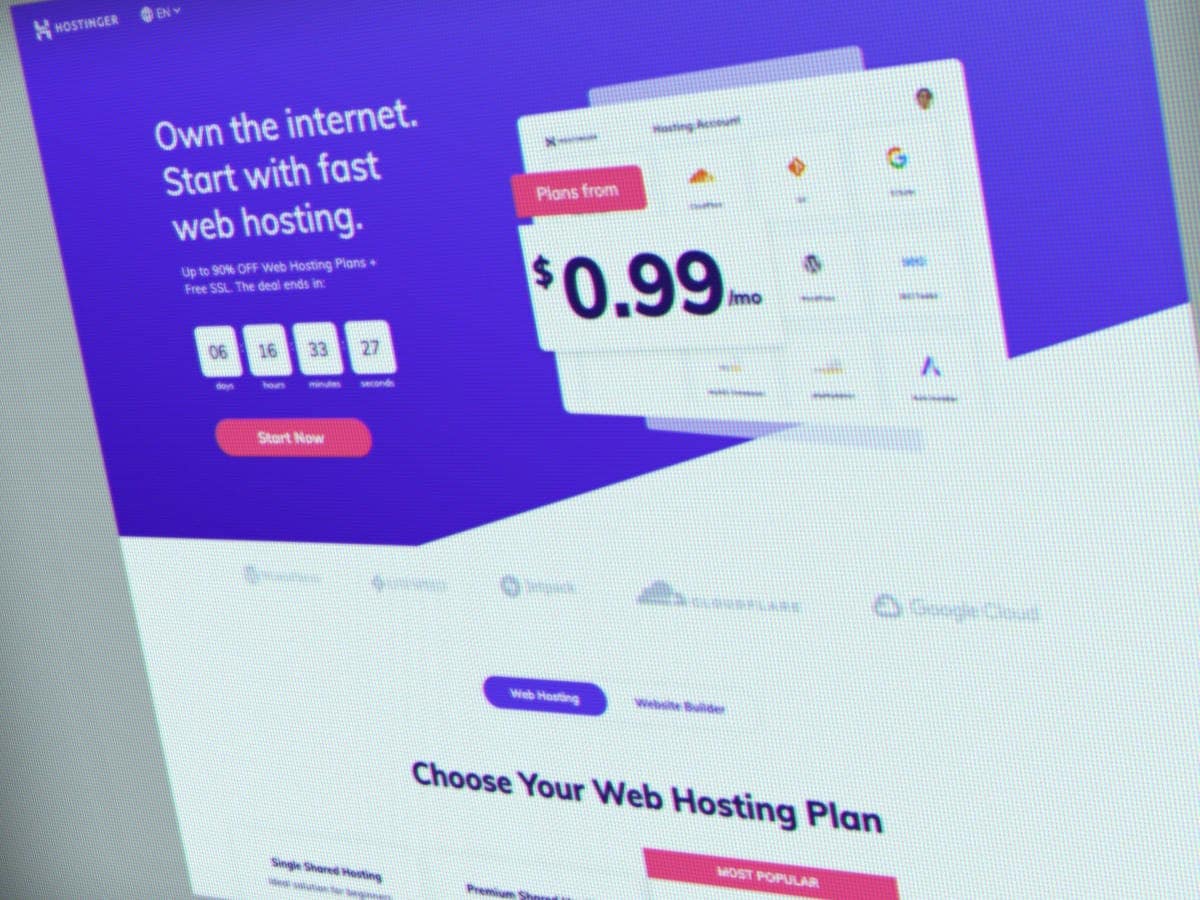
Hostinger is a traditional web hosting provider. You can use WordPress or set up your shared server or virtual private server with unlimited web applications. Unfortunately, in August 2019, Hostinger revealed that 14 million users may have been affected by a security breach. The company reset the passwords of all affected accounts.
When I did extensive testing at Hostinger last year, I found that they had properly updated most of the security components on their servers within a few months. Performance is adequate, even at their lowest subscription. Just keep in mind that when you get into the generic hosting category, the pricing may be misleading. It increases dramatically after the first year and although they advertise 0.80 cents per month, you will actually be charged over 40 euros at checkout, and more than double that at renewal.
- cPanel: yes
- SSL: free
- SSH: on some projects
- Backups: on some subscriptions
- 30 day money back guarantee
- Support: chat 24/7/365
InMotion Hosting, a solid 90-day warranty and responsive support

InMotion is in the pantheon of standard hosting providers. They offer the usual range of offerings, from shared website hosting to virtual private servers, dedicated servers and even reselling services.
The prices are reasonable. I can’t tell you the exact price because their promotions are constantly changing the rates. One of their support people also told me that if you log in through support and ask for a quote, it is possible to save a few dollars on the base price. Like most standard hosting providers, the price goes up over the next few years, but unlike many others, InMotion’s price is not as shocking as some of the others I’ve looked at.
- cPanel: yes
- SSL: free
- SSH : yes
- Backups: limited
- Guarantee: refund
- Support: chat and Skype 24 hours a day, 7 days a week
Dreamhost, a hosting that goes green
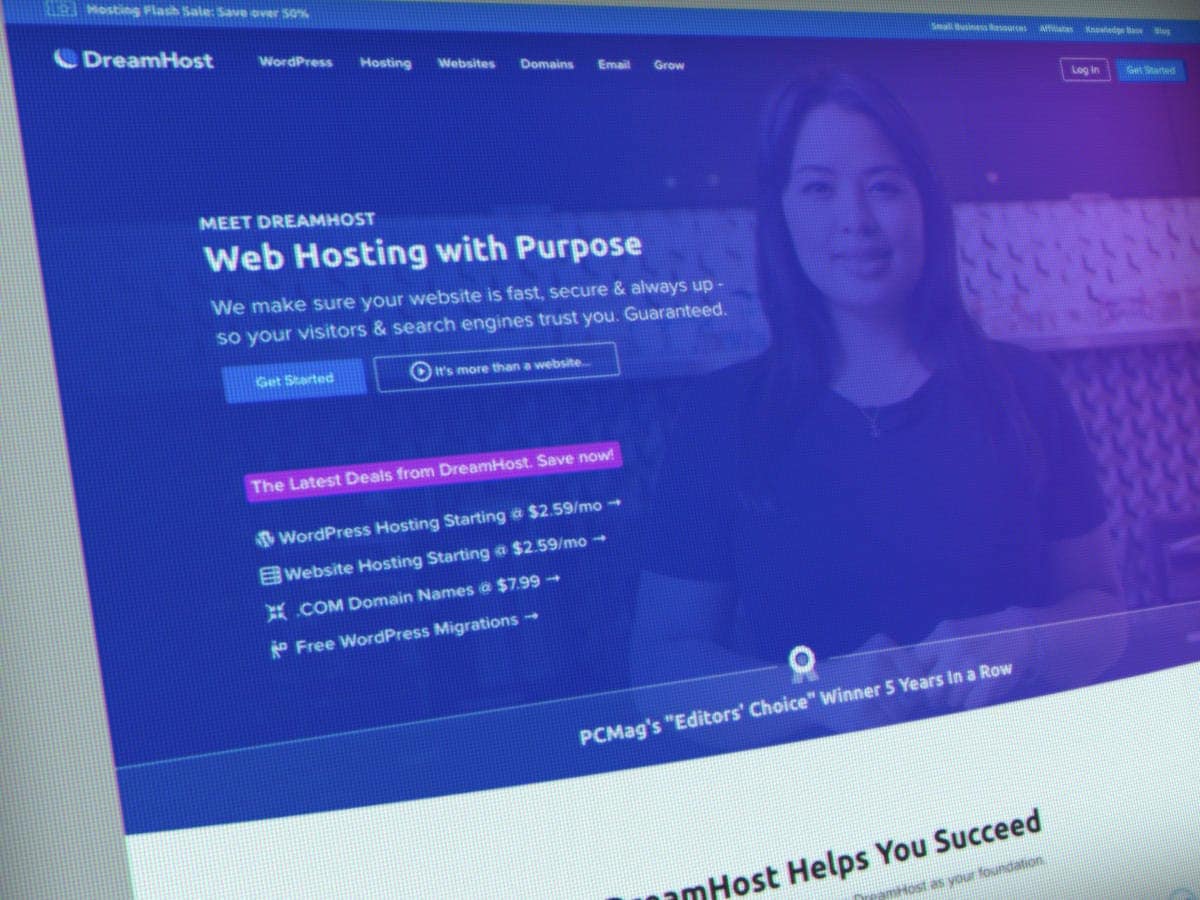
DreamHost is a full-service hosting provider that has made an ongoing effort to reduce its environmental footprint. With EnergyStar certified facilities, a high-efficiency cooling system, partnerships in clean wind energy programs and a commitment to powering its data centers with renewable energy, DreamHost is looking to the future.
As for the hosting offerings themselves, DreamHost offers WordPress hosting, shared hosting, virtual private servers, dedicated servers and cloud hosting. We particularly like the fact that DreamHost has added G Suite integration to its offering, with domain integration and Google Cloud support. The company also provides a set of resources and guides that can help customers grow their business.
- cPanel: no, proprietary panel
- SSL: free
- SSH : yes
- Backups: yes
- 97 day money back guarantee
- Support: chat, ticket and callback 24/7
GoDaddy, the father of all hosting providers

GoDaddy is on a mission to provide as wide a range of services as possible to individuals and small businesses who need an internet presence.
While the bulk of my 10+ year experience with GoDaddy has been with domain registration, I have come to respect the way the company provides the key services that most customers want. They are certainly not the best, in any area, but they do a good job in almost every area. The prices are right, the customer service is reasonable, and while it’s not 24/7, if you need technical help to get something done, you can usually find someone.
- cPanel: on some projects
- SSL: on some projects
- SSH: on some projects
- Backups: for some subscriptions
- Money back guarantee: 30 days for annual subscriptions, 48 hours (!) for monthly subscriptions
- Support: 24 hours a day, 7 days a week, 365 days a year, in the USA
Please note: GoDaddy will only refund monthly subscriptions if they are cancelled within 48 hours of the transaction. This is very restrictive.
IaaS providers
Let’s finish our list of hosting providers with the IaaS providers. These are names you probably know very well – Google, Amazon and Microsoft. The five companies we include in our list are very credible providers that have been providing infrastructure for years.
If you’re just starting out, you may not want to use an IaaS provider for a website, although they offer more flexibility. Some, however, like Amazon with Lightsail and Digital Ocean with Droplets, allow you to set up machines that run WordPress with point-and-click logic, or almost any other open source content management system you might want to use.
One quick note: since IaaS providers offer many configuration choices, list choices like cPanel, SSL, SSH, backups, etc. In most cases, you will need to configure these yourself as part of your overall setup.
Rackspace, co-contributor to the OpenStack project

Rackspace started its business more than 20 years ago as an infrastructure rental company. Back then, if you wanted a colocated server at a hosting provider, you rented rack space in a data center. Hence the name: Rackspace.
Today, Rackspace is a primarily cloud-based IaaS provider. Its great reputation is due to the co-creation of the open source cloud computing platform OpenStack, which manages IaaS workloads (virtual servers and other resources) in public and private clouds. The main benefit of OpenStack, beyond its technically sound cloud management features, is that it reduces lock-in. OpenStack implementations can (with some effort) be ported from one OpenStack hosting provider to another.
Rackspace provides a wide range of services and support on its cloud, primarily aimed at large SMBs.
AWS (Amazon Web Services), the reference platform for on-demand cloud computing
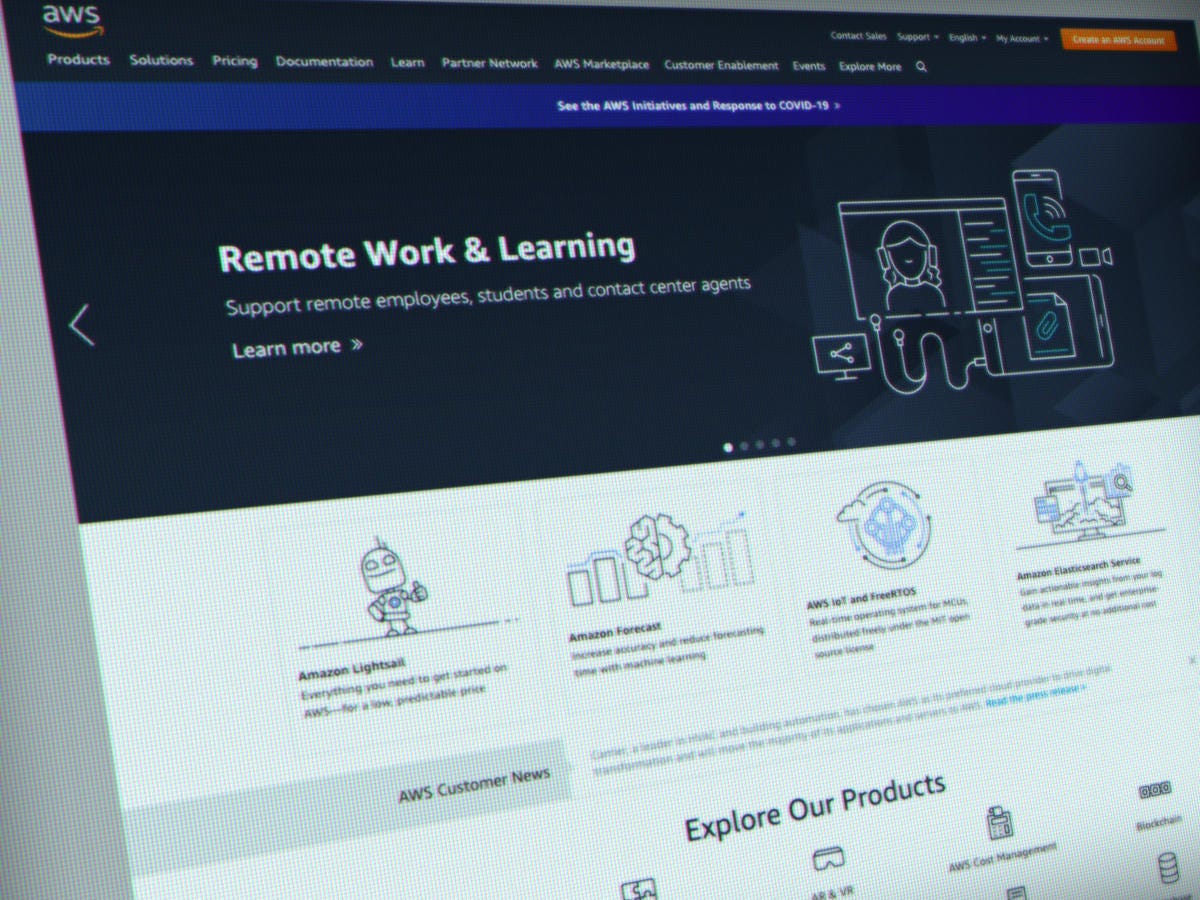
AWS is a giant in the cloud computing world. Here is perhaps the best example of the power and capability of AWS: most of Netflix’s infrastructure runs on AWS. When you imagine the size of the Netflix library and the incredible demand for its content, you begin to understand the scale of AWS.
What makes AWS really special is the way the company has sliced and diced almost every type of cloud-based resource, from storage to mail to specific AI-based workloads, and then can sell them at very incremental levels based on workload.
You can rent a virtual server to run Netflix, or you can rent a small virtual Linux installation with half a gig of RAM for five bucks a month. You can also combine services, as long as you have a valid payment method.
I use Amazon’s S3 to backup some of my files. AWS is the underlying infrastructure for Pagely, which runs my main web servers, and I’ve used AWS Lightsail to run virtual servers quickly and cheaply.
Digital Ocean, virtual servers and more
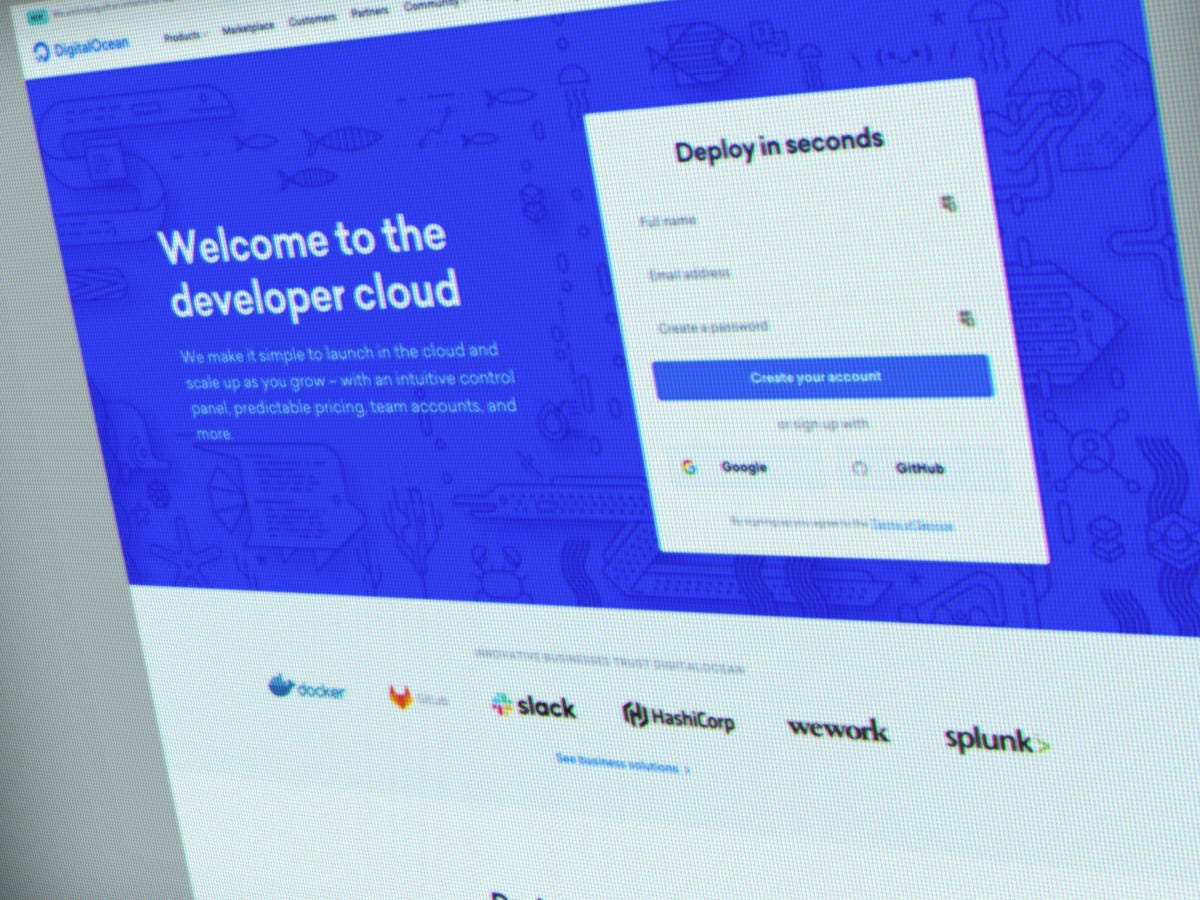
Digital Ocean offers cloud-based infrastructure like AWS but also a much smaller set of services. These include scalable compute services (i.e., virtual machines), managed Kubernetes clusters, cloud-based databases and simple object storage.
I use Droplets from Digital Ocean to host a Linux server in the cloud that runs 10 of my websites, as well as other additional workloads. Droplets is incredibly easy to install and deploy, and just as easy to remove. I often run Droplets for testing, paying only a few cents for a few days of use, then delete the instance when I’m done testing.
While AWS has undeniable depth and breadth, it is a bit more complex to use. The actual infrastructure you buy costs about the same as comparable AWS services, but Digital Ocean is simpler and more straightforward.
Google Cloud, use Google’s infrastructure to manage your cloud
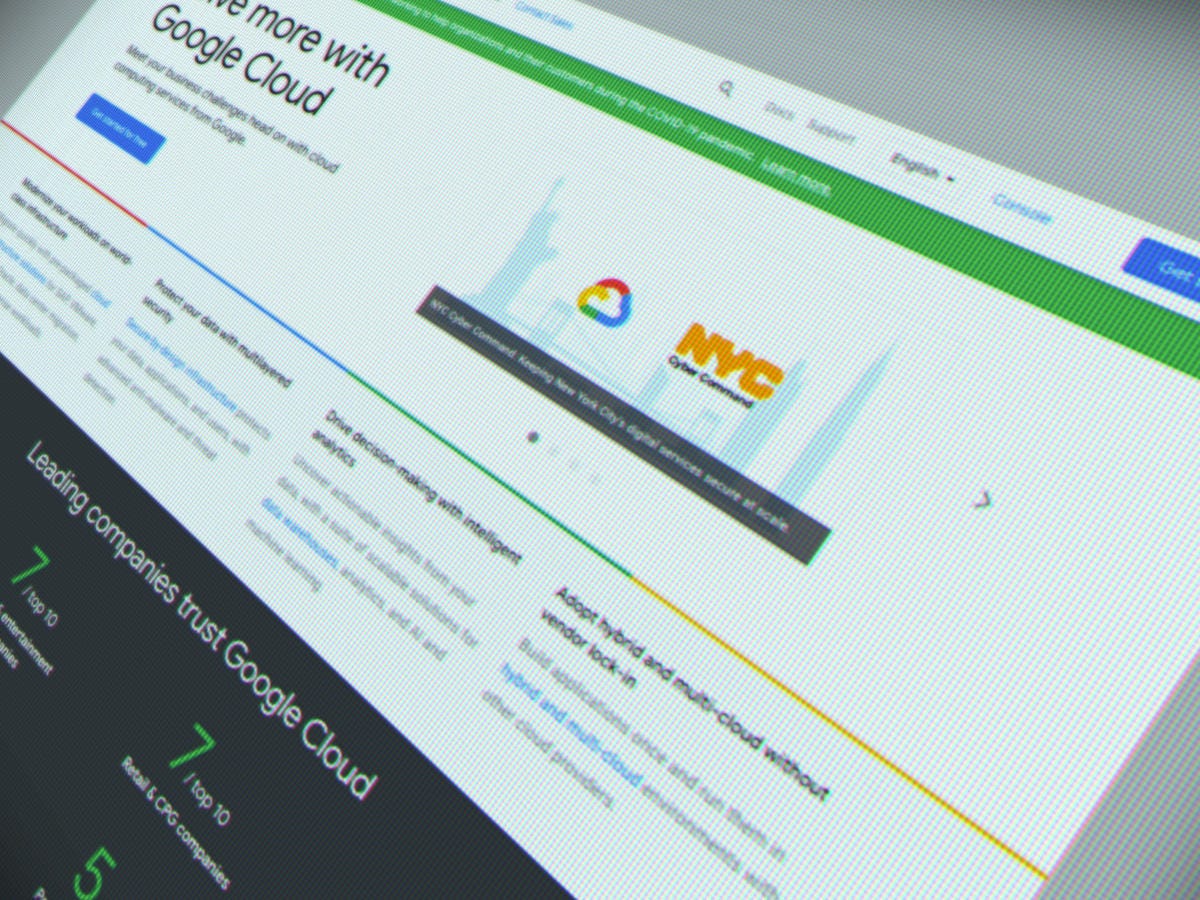
Beyond Google’s SaaS offerings (specifically G Suite), Google Cloud offers IaaS capabilities to those who want to manage their infrastructure using Google’s cloud and cloud technology. When you realize that Google Cloud uses the same infrastructure as Google’s search engine and YouTube, you see how Google Cloud suddenly becomes a very credible competitor.
Google Cloud offers a similar range of cloud services as other providers, but also capabilities based on Google search and a vast data management infrastructure. If you’re looking to leverage Google’s unique capabilities for an ambitious, large-scale project, Google Cloud is a viable option.
Microsoft Azure, a powerful IaaS in the image of Microsoft

Finally, let’s conclude this selection of cloud hosting environments with Microsoft Azure. Given that Microsoft runs Azure, it’s no surprise that you can run Windows and Windows Server workloads on Azure. But Microsoft has made a big move toward Linux in recent years, so you can also integrate Linux workloads into your cloud environment.
The key to choosing Azure is often an existing relationship with Microsoft. For companies that have service contracts for thousands or millions of Windows desktops and servers, Azure is a logical extension. It’s also important to recognize that the natural ability to integrate Microsoft 365, virtualized Windows desktops and Microsoft Teams, and private cloud workloads gives Microsoft Azure compelling use cases. For those familiar with IIS, Microsoft’s web server, Azure is also a no-brainer.
Our selection process
So there you have it. We’ve presented you with 15 hosting providers in four different categories. In compiling this list, I started with the hosting providers I know personally. I’ve been running production websites since about 1997, and my sites have served millions of pages.
Today, I manage about a dozen sites, some very active and some are archives of older sites. Today, I use Digital Ocean, AWS, Pagely, and GoDaddy (each for a different type of work), but I have purchased and tested hosting services for almost every other site. It’s impossible to test every hosting provider, simply because there are so many. We chose these providers because we know them all a little bit.
